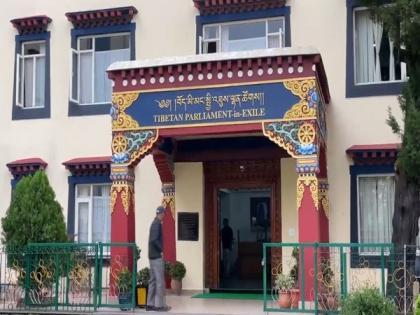
At the recent Quad Summit, President Biden and Prime Minister Modi made comments about China, to which Tibetan officials have responded angrily. The Central Tibetan Administration’s president, Sikyong Pempa Tsering, shared his opinions on how the Quad partnership is changing.
He said, “It looks like the Quad formation is getting more entrenched and as we have been mentioning over the years, the reality of China’s threat is very visible so I think India’s role, particularly in this grouping, will be very, very crucial.”
Tsering also emphasized the need of closer US-Indian collaboration, especially on matters pertaining to microchips.
“There is a convergence of strategic alliance that needs to be formed because of China and China’s behavior, so that’s very clear in this grouping,” he said. Tsering said that another significant element in this geopolitical environment is the struggle for influence in the Global South.
Tsering underlined the Indo-Pacific area’s strategic significance by saying, “Indo-Pacific is a very busy maritime trade route from Malacca Strait to Indian Ocean so it is important not only for the countries in this region but it involves a lot of trade.”
He underlined that talks regarding security and economic matters have become more heated due to worries over China’s hegemonic claims in the East and South China Seas.
During the interview, he said, “I think it is very clearly mentioned South China Sea and East China Sea that is where Australia comes into.”
The Sikyong went on to say that in reaction to China’s moves, countries in the Asia-Pacific area, including as Japan, South Korea, Australia, and New Zealand, are also increasing their defense budgets. He said, “So all of these countries announce much more money on defence only because of China’s behaviour.”
The Deputy Speaker of the Tibetan Parliament in Exile, Dolma Tsering, also commented on the significance of the Quad and the statements made by Biden and Modi. “These remarks, particularly the ones from America and India, strike me as being really significant.
I want to congratulate Prime Minister Modi on India’s rise to prominence because it’s a really beneficial development for the globe,” the speaker said. Dolma pointed out that a united front against challenges to democratic sovereignty and the rule of law is reflected in the Quad Summit.
“Looking into Xi Jinping’s global ambition of expending to wherever they are touching is not only intimidation endanger to South Asia but to the whole world,” she said in reference to China’s growing influence.
Dolma expressed similar worries to President Biden, saying, “I believe President Biden has said clearly that China is testing us. As a global democratic system, we are all of us,” Dolma told ANI.
Dolma Tsering also emphasized the need for finding a peaceful way to end international hostilities. “Prime Minister Modi has also told us that they are looking for a possible peaceful resolution of conflicts happening around the world,” she continued. She asked Modi specifically about the condition of the exiled Tibetans. “The majority of Tibetans are in India, so we want Prime Minister Modi and the stakeholders of the Quad; in America also we have sizeable American Tibetans; in Austria also, Australia also we have a sizeable number of Australian Tibetans,” she said.
“We want the leaders to raise the issue of Tibet, the occupation of Tibet also, and try to resolve this long-standing decades-old conflict between Tibet and China in a most amicable way,” Dolma emphasized in her call for world leaders to support Tibetan rights.
The Quad grouping voiced grave concern about the coercive and threatening tactics in the South China Sea earlier on Saturday in its Wilmington statement.
The presidents of the US, India, Australia, and Japan emphasized in the joint statement that maritime conflicts must be settled amicably and in compliance with international law, and they denounced attempts to interfere with other nations’ offshore resource extraction operations.
The leaders declared their unwavering belief that maintaining peace, safety, security, and stability in the maritime domain, as well as upholding international law—which includes respect for sovereignty and territorial integrity—should be given first priority.